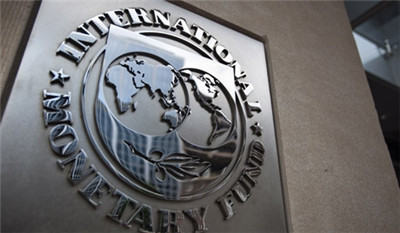(单词翻译:单击)
The International Monetary Fund has declared that China’s currency is “no longer undervalued”, marking a significant shift after more than a decade of criticism of Beijing’s tight management of the renminbi.
国际货币基金组织(IMF)宣告人民币币值“不再被低估”,在连续10多年批评北京方面严密管理汇率之后,这标志着一个重大转变。

The move amounts to a big vote of confidence in Beijing and the renminbi at a critical time. It also puts the IMF at odds with its biggest shareholder, the US, which insists that China continues to draw an unfair trade advantage from a renminbi that it considers “significantly undervalued”.
此举相当于在关键时刻对北京方面和人民币投下一大信心票。这也使IMF与其最大股东美国意见分歧,美国坚持认为,中国继续从美国认为“显著低估”的人民币获得不公平贸易优势。
The renminbi has gained 25 per cent against the US dollar since it was allowed to adjust upwards within a narrow band a decade ago, and has held its value even as the dollar has strengthened against other major currencies over the past year.
自10年前人民币被允许在一个狭窄的区间向上浮动以来,其兑美元汇率已升值25%,即使过去一年美元相对于其它主要货币走高,人民币也保持了兑美元汇率稳定。
But many economists — and, until yesterday, the IMF fell into that camp — have long considered the renminbi to be undervalued. They have pointed to Beijing’s historical tight control of the currency’s value as a big factor in the rise of its export-oriented economy to a point where it is now the world’s leading trading nation.
但是,许多经济学家(截至昨日IMF也在那个阵营)一直认为人民币被低估。他们指出,北京方面一直以来对汇率的严密控制,是中国的出口导向型经济得以崛起、以至于现在是世界领先贸易大国的一大因素。
Speaking in Beijing at the end of a regular review of China’s economy, David Lipton, the IMF’s first deputy managing director, said: “While undervaluation of the renminbi was a major factor causing large imbalances in the past, our assessment is that the substantial real effective appreciation over the past year has brought the exchange rate to a level that is no longer undervalued.”
对中国经济的定期评估结束后,IMF第一副总裁戴维•利普顿(David Lipton)在北京发表讲话时表示:“尽管人民币低估过去是造成巨大失衡的一个主要因素,但我们的评估是,过去一年的大幅实际有效升值,已使人民币汇率升至不再低估的水平。”
In Washington a senior US official said that while the US welcomed the recent appreciation in China’s currency it remained of the view that the renminbi was “significantly undervalued” with China’s trade surplus with the US and other nations strong evidence of that.
在华盛顿,一名美国高级官员表示,尽管美国欢迎人民币近期的升值,但美国仍然认为人民币被“显著低估”,中国对美国和其它国家的贸易顺差就是强有力的证据。
Eswar Prasad, the former head of the IMF’s China unit, said the shift by the fund was important as it marked the first time since the late 1990s Asian financial crisis that the fund had not deemed the renminbi to be undervalued. It also presaged the likely adoption later this year of the renminbi as one of the small number of major currencies in a basket used to determine the value of the IMF’s de-facto currency, the Special Drawing Rights.
IMF中国部前负责人埃斯瓦尔•普拉萨德(Eswar Prasad)表示,IMF的这一转变是重要的,因为它标志着自20世纪90年代末亚洲金融危机爆发以来,IMF首次不认为人民币被低估。这也预示着,人民币有可能在今年晚些时候被纳入用于确定IMF事实上的货币——特别提款权(SDR)价值的由少数主要货币组成的货币篮子。
China has publicly expressed its desire for the renminbi to join the dollar, yen, euro and pound sterling in the SDR basket — a move that would see it recognised as an official reserve currency.
中国已经公开表示,愿意让人民币加入美元、日元、欧元和英镑的行列,共同组成SDR篮子——此举将意味着人民币被承认为一种官方储备货币。
“We welcome and share this objective and will work closely with the Chinese authorities in this regard,” Mr Lipton said yesterday, noting the IMF’s stated position on the renminbi’s inclusion in the SDR “is not a matter of ‘if’ but when”.
“我们欢迎并分享这一目标,并将在这方面与中国政府密切合作,”利普顿昨日表示。他还指出IMF的明确立场,即人民币被纳入SDR篮子“不是‘是否’的问题,而是什么时候”。
The IMF is conducting a review of the SDR facility and its constituent currencies that is due to be completed later this year. To be included, the renminbi must be deemed to be “freely usable”.
IMF正对SDR安排及其组成货币进行评估,定于今年晚些时候完成。若要被纳入,人民币必须被视为“可自由使用”。


